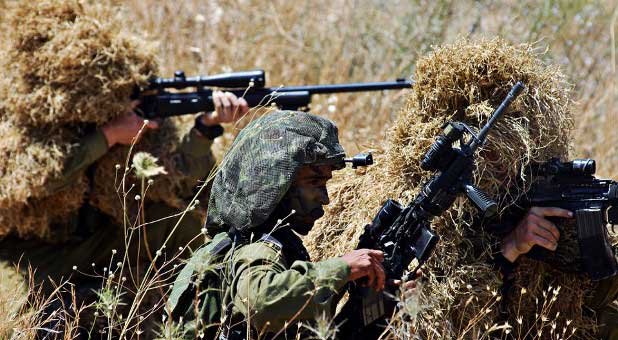IDF Boosts Security Regiment
A group of 15 new soldiers have joined the ranks of the technicians maintaining the advanced fences that protect Israel, following last week’s conclusion of the most recent cycle of the Border Alert Systems training course.
These technicians are responsible for hundreds of kilometers of fencing fitted with touch and motion sensors, which protect Israel from threats in Gaza, Judea and Samaria, Lebanon and Sinai.
During the three-week training course, which took place at the Tzrifin training base, the participants learned to recognize every detail of the fences.
“Here on the base, the participants learn how electricity works and how fences work,” said Sgt. Meir Zanu, who taught the latest course. “Afterward, they study the components of a fence, how to work together with computers and situation rooms, how to use the tools that they will receive in their service and, most importantly, how to work under fire—a thing that will ultimately come up during their regular service.
“They leave here with the knowledge of how to locate and fix a malfunction. With the knowledge that they acquire in the course, they will manage to integrate on (their future bases) and begin to work on the fences immediately.”
Before being accepted to the training course, each of the new technicians was evaluated and given a sufficiently high physical profile to serve as a combat soldier.
“The technicians are not combat soldiers, but they still perform their jobs in the line of fire,” said Warrant Officer Oded Moshe, commander of the training course.
“They come here with motivation and a will to serve in the field. From here, they go to all of the combat units, (where) they are considered part of the unit and absorb its culture and way of life. They work together with infantry (units) such as Givati and Golani, and sometimes even take part in the activities of elite units.”
The training course includes a range of content, but the emphasis is on the practical aspect. For that purpose, a fence of several meters was built at the instructional base for participants to practice locating and repairing malfunctions.
“Ultimately, a fence of a few meters is just a fraction of the responsibility that will fall on each person here—they will need to intimately know (a stretch of) fence tens of meters long,” Moshe said. “In the next courses, we will increase the amount of practical content in the course, and we will adapt the studies to cover every possible fence in the State of Israel.”
Click here for the original article at idf.il.















































